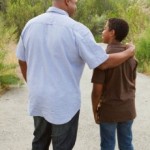When I was in 7th grade, my friend Gary and I were walking along a busy street in St. Louis Park, Minnesota. Gary had a squirt gun, which he hid under his arm as he squirted cars passing by. (Sounds like boy behavior, doesn’t it?) The cars were going so fast and the gun was so cheap that maybe a couple of drops landed on an occasional car.
Unfortunately, a couple of drops landed on a sports car driven by a man in his late 20’s or early 30’s. He hit the brakes, jumped out of his car and began to (metaphorically) body slam us with one cuss work after another—all over a couple of drops of water.
Here’s why I remember that moment—I had never heard an adult swear that profusely before. And to be honest, I thought it seemed rather childish for a grown man to speak that way. I thought adults knew better and had a better grasp of language than that.
You’re probably thinking, what kind of sheltered life did you live? I attended public schools. I’d heard kids my age cuss and swear and use fowl language. But:
- In the early days of my childhood, we didn’t have swearing or cussing on TV so I didn’t hear adults using that language like my kids did growing up and my grandkids will in today’s culture
- My parents didn’t swear. One of the positive disciplines they taught us was to find words for expressing anger or frustration other than “dirty” words. (My uncle used the phrase, socks and underwear!) Even words like, gee and gosh or golly were frowned upon because they were forms of the name God (don’t take God’s name in vain). Darn it was a form of damn it so don’t use it.
Were my parents prudes? Nope. Were they out of touch with reality? Nope. My dad, for example, grew up in a broken home. His alcoholic father abandoned them for a teen age girl and left my dad, his mom, and his siblings living in poverty. Dad was a child of the streets in many ways. He knew what real life was like.
But my parents understood something that has been lost in our culture today: words matter. The kinds of words we use matter. And even though expressing anger is expressing anger no matter the words we use, there is something about expressing it with words that offend us and others with their negative energy.
The words we use express our character and, when used enough, shape our character. Words matter.
Boys have a hard time accessing words for their emotions because of the way their brains are wired. Often you will hear people say to a boy: Use your words. But what words do we want him to use? Increasingly, it seems, that f—, sh–, damn, etc are the words we are giving them.
And that confuses boys. Because deep down boys want to live lives of honor and goodness. Because teachers and coaches and parents and religious leaders are calling boys to live up. But the words we are giving them to express negative emotions drag boys—and those who hear their words—down. Foul, nasty, offensive language, every time it is used, puts another dagger slice into a boy’s view of himself; into his God-given call to live with honor. His call to build the world up. To make the world a better place. F-bombs and sh-droppings, etc, pollute the atmosphere around us and boys know it.
It’s hip and in vogue right now in some Christian circles for Christian leaders to use offensive, vile language. It seems the cruder the language the more “authentic” the leader is. The more human and accessible the leader is assumed to be to a wider audience of people. (Swearing for this next generation seems to be what contemporary worship/praise music was to reaching my generation.)
But does the world really need more of us dragging the world down with vile language? Does the world really need Christian people adding to the negative pollution of words through swearing and offensive language? Do we need more people dropping F-bomb? Or does the world need people to call us up through language that affirms and blesses?
Let no evil talk come from your mouths, but only what is useful for building up, as there is need, so that your words may give grace to those who hear. The Apostle Paul, Ephesians 4:29
But you must get rid of all such things—anger, wrath, malice, slander and abusive (filthy) language from your mouth. The Apostle Paul, Colossians 3:8
These aren’t the rantings of some legalistic, holier-than-thou, self-righteous zealot. These are words of grace, rooted in the grace of Jesus, calling followers of Jesus to live up in a world often dragged down by language that offends and hurts.
Language is a habit. Just as swearing is a habit we develop so using grace-empowered words is a habit we can learn. Language affects mood. Use degrading language and it depresses or darkens an environment. (I experience that when I occasionally lose it and let a few choice words fly. I always sense that my mood gets even darker the more foul the language.) Use grace-filled words, on the other hand, and we create a healthy, healing, uplifting environment.
If we believe in calling our boys to be men of honor and goodness, men who build up the world rather than tear it down, then we will want to give them the gift of being able to identify and express their emotions, and to do so with words that are honest, but that in the end give grace to all who hear.











